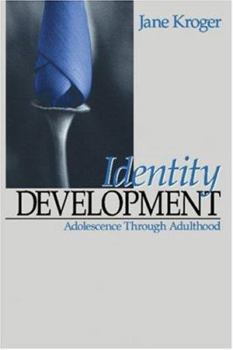Identity Development: Adolescence Through Adulthood
Select Format
Select Condition 
Book Overview
'Kroger has crafted a readable and coherent account of the lifelong process of identity development. Richly illustrated with case study material, the book skillfully integrates biological, social, and cultural perspectives on a phenomenon often viewed as primarily developing within the person. The book clearly demonstrates that identity development is not restricted to adolescence, but that it is a lifelong process of construction and transformation...
Format:Paperback
Language:English
ISBN:0803971877
ISBN13:9780803971875
Release Date:September 1999
Publisher:Sage Publications, Inc
Length:312 Pages
Weight:0.95 lbs.
Dimensions:0.7" x 6.0" x 9.0"
Customer Reviews
1 rating
Positive Review
Published by Thriftbooks.com User , 21 years ago
In Identity Development: Adolescence through Adulthood, Kroger (2000) focuses on the early, middle, and late periods of both adolescence and adulthood. She not only provides research which is applicable to Erikson?s psychosocial theory of development, but also offers her own view points in regards to this premise. Furthermore, Kroger writes of the necessity for additional studies concerning Erikson?s psychosocial point of view of each of the phases of life addressed. To begin, this book is immediately intriguing due to its use of Erikson?s psychosocial theory. Of all the developmental theories, this must be the one which includes the most comprehensive look at development throughout the lifespan. By using challenges that are faced during particular phases of development, Erikson specifically outlines developmental tasks that must be completed as well as those which must be avoided. Kroger separates the text into three parts, devoting Part I to the discussion of perceptions of the wholism of identity. Erikson is given credit for the original idea of such wholistic identity perspectives. His theory encompasses the suggestion that the attainment of an identity is a mission that must be fulfilled during adolescence in order to pursue and complete additional tasks in adulthood. In addition to Erikson?s theory, Kroger discusses other frameworks in which the study of identity may be approached. In Part II, Kroger discusses adolescence. This part is divided into segments pertaining to early adolescence, middle adolescence, and late adolescence. She begins each segment by discussing the biological, psychological, and societal influences that accompany the three stages of adolescence. Next, she discusses developmental tasks that are faced during adolescence and the way in which these tasks affect identity development. Some of these specific developmental tasks are puberty, sexuality, vocation decisions, and the development of values. Finally, at the end of each segment, Kroger discusses specific contexts that affect identity development. Each context is viewed in relation to the stage of adolescence being studied. Specific contexts include family, friendships and peer groups, and educational and work settings. The final part of the text is set up quite similar to Part II. However, in Part III, Kroger discusses early adulthood, middle adulthood, and late adulthood. Biological, psychological, and societal influences pertaining to each stage of adulthood are discussed at the beginning of each segment. Developmental tasks faced during the three stages of adulthood are also discussed, including identity, intimacy, generativity, and integrity. Finally, Kroger discusses specific contexts affecting the development of identity during adulthood. These contexts include the family and social network, the career, and association with one?s community. The way in which Kroger designs the framework for her text is logical and allows for easy comprehension. By designing Pa






